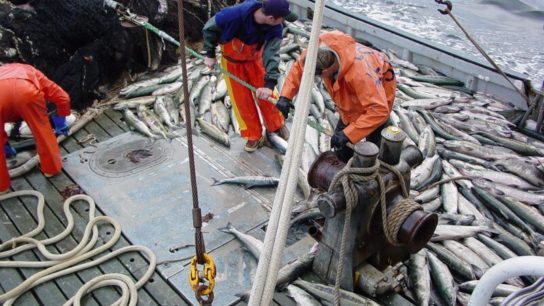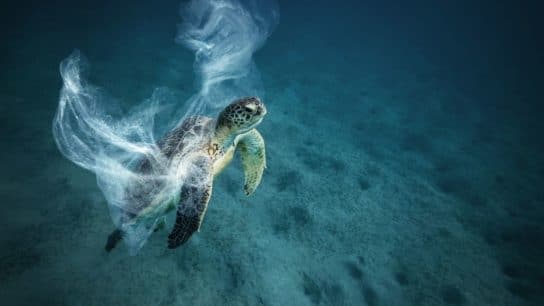From industrial practices to the pervasive use of plastics, we have crafted a narrative of ecological disarray beneath the surface. And the world’s oceans, now marked by the unmistakable traces of human actions, serve as a poignant reminder of this. As we traverse the vast expanses of our oceans, a disconcerting reality emerges, compelling us to deeply reflect on our responsibility in addressing marine pollution.
—
In our current era, global efforts are more deeply engaged with a critical environmental challenge: marine pollution. At the forefront of ocean conservation stands the UN Decade of Ocean Science for Sustainable Development, initiated in 2017 as a symbol of worldwide dedication. Operating from 2021 to 2030, its core objective is the formidable task of combating marine pollution.
A pivotal moment occurred in March 2022 during the reconvened fifth session of the UN Environment Assembly (UNEA-5.2), where an important resolution was adopted. The resolution, geared toward creating an internationally binding legal instrument, specifically targets plastic pollution and its widespread impact on marine environments.
What Is Marine Pollution?
Marine pollution is a complex issue, with over 80% stemming from land-based activities. It includes toxins, plastics, sewage, and noise, threatening ecosystems and human health. The UN’s Sustainable Development Goal (SDG) 14.1 aims to reduce marine pollution by 2025.
As defined by the 1982 UN Convention on the Law of the Sea, marine pollution alters the ocean’s physical, chemical, and biological state, harming marine life. Notably, nitrogen-phosphorus pollution, chemical pollutants, and plastic debris are significant concerns.
Nitrogen-phosphorus pollution, driven by agriculture and other sources, causes algal blooms and “dead zones,” impacting fisheries. Chemical pollution from sources like crude oil and pesticides harms marine life and water quality. Persistent, toxic substances like Polychlorinated Biphenyls (PCBs) and Polybrominated Diphenyl Ethers (PBDEs) persist in the environment.
Coastal pollution affects over a third of shellfish-growing waters in the US. The restoration of areas damaged by nonpoint-source pollutants is expensive, with millions of dollars spent annually.
Air pollution settling into water bodies is another source contaminating marine environments, and the impact of nonpoint-source pollution can lead to beach closures and unsafe conditions for humans and wildlife.
You might also like: 13 Endangered Marine Species in 2023
Marine Debris
Marine debris, predominantly plastic, poses severe threats to ocean ecosystems and wildlife.
Plastic pollution has surged tenfold since 1980, affecting marine species and creating vast accumulations like the Great Pacific Garbage Patch. About 8 million tons of plastic enter the ocean annually, threatening marine ecosystems. The projection indicates that ocean plastic pollution is set to increase to 29 million metric tons by 2040.
Fishing gear, like discarded lines and nets, continues to trap marine life, even after use. Marine debris tends to collect in ocean gyres, forming garbage patches.
More on the topic: What Is the Great Garbage Patch?

Wildlife at Risk
The reaction of biomasses to these environmental stressors is palpable. From fish in the North Pacific ingesting tons of plastic annually to sea turtles and seabirds mistaking plastic for food, the impact of plastic pollution is devastating.
Half of all sea turtles globally have ingested plastic. About 60 percent of seabird species have eaten plastic pieces and scientists project that this percentage is expected to reach 99% by the year 2050. Beaches are now so contaminated that it affects marine life reproduction.
Marine mammals, including endangered species like Hawaiian monk seals and Steller sea lions, suffer from ingesting and getting entangled in plastic. Urgent action is needed to address this pervasive issue threatening the well-being of our oceans and their inhabitants.
Plastic, which does not easily biodegrade, breaks down into microplastics, harming marine life and ecosystems. Nurdles, tiny plastic pieces, accumulate in the stomachs of marine animals, leading to malnutrition and starvation.
You might also like: Are Microplastics Harmful And How Can We Avoid Them?
Floating plastic obstructs sunlight, affecting plants and algae and disturbing the marine food web. As plastics degrade, they release harmful chemicals like bisphenol A, impacting animals’ reproductive systems. Bioaccumulation concentrates these chemicals in fish, affecting human health when consumed.
Population declines, disrupted migration patterns, and altered behaviours serve as indicators of the profound impact of pollution on marine life. The interaction of predator and prey, crucial for the balance of ecosystems, falters under the weight of human-induced pressures.
The fading vibrancy of coral reefs starkly reflects the issue as well. As coral ecosystems crumble and marine habitats turn into plastic repositories, intervention becomes urgently necessary. The decline of these vital ecosystems signals a broader threat to marine biodiversity, emphasising the need for sustainable practices, reduced plastic consumption, and climate change mitigation.

Waste Management and Recycling
Initiatives such as reducing single-use plastics, promoting recycling, and embracing innovative cleanup technologies are key components of a sustainable solution. Global collaborations and community-led cleanup efforts further underscore the collective responsibility we bear. Educating individuals about the impact of their choices on marine ecosystems adds an essential layer to this intricate puzzle.
In the domain of marine waste management and recycling, a surge of pragmatic solutions is crystallising to confront the environmental challenges arising from ship-generated waste, coastal pollution, and offshore activities.
Strategising to diminish ship-generated waste involves a disciplined orchestration of methodologies, from stringent waste minimisation and precise segregation to onboard treatment. This precision is bolstered by the integration of sustainable design principles for ships and the exploration of advanced waste-to-energy technologies.
Today, an additional layer of urgency unfolds – a prediction that pollution from sunken vessels will reach its highest level this decade. The financial burden of responding to pollution from wrecks is substantial, especially for developing nations. The responsibility for these costs remains unclear, with many affected countries not participating in World War I and World War II, leaving the question of ownership under sovereign immunity principles.
On the other side, over 8,500 shipwrecks are at risk of leaking approximately 6 billion gallons of oil, posing serious threats to communities, coastal economies, wildlife populations, and ecosystems. The efficacy of the International Convention for the Prevention of Pollution from Ships (MARPOL) is contingent on the unequivocal commitment and cooperative actions of sovereign nations.
You might also like: UN Successfully Removes 1m Oil Barrels From Ageing Tanker in Yemen, Avoiding Environmental Catastrophe in Red Sea
On the coastal front, a stern narrative unfolds. Its script comprises uncompromising awareness campaigns, the meticulous development of robust infrastructure, and resolute backing for projects that metamorphose coastal waste into invaluable resources. This austere narrative not only instils a culture of responsible waste governance but also propels coastal communities toward a tenacious and sustainable future.
The offshore waste management landscape underscores the imperative of adhering to the waste hierarchy principle. This methodical approach prioritises waste prevention, reduction, and the adoption of state-of-the-art treatment technologies, notably plasma gasification. This rigorous framework aims not only to align with fragile marine ecosystems but also to contribute systematically to the sustainable orchestration of offshore activities.
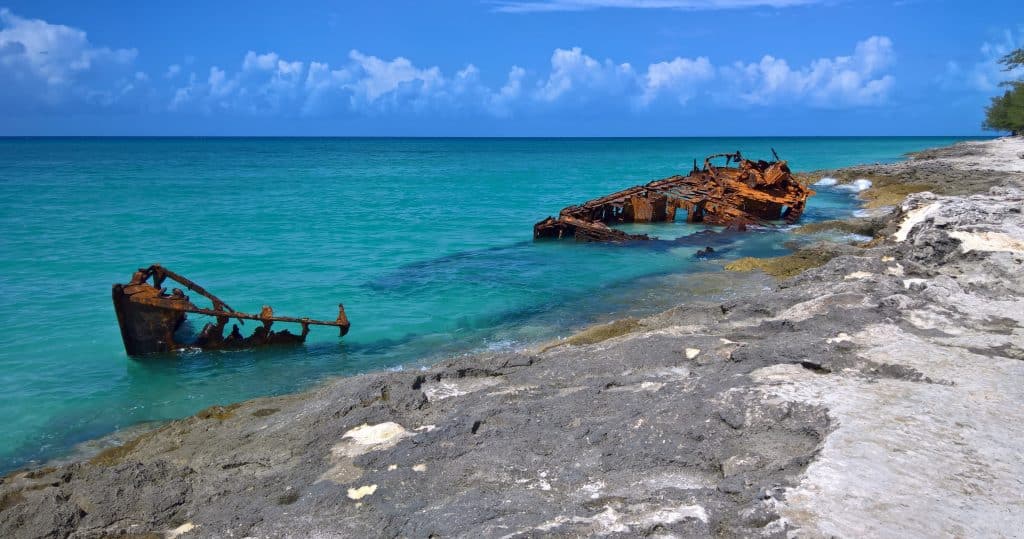
Solutions and Innovation for a Sustainable Future
In the presence of the ecological challenge at hand, a glimmer of hope appears – not merely through technological advancements but through a shift in our collective consciousness.
The UN’s Vision 2030 initiative, as part of the Ocean Decade, focuses on addressing marine pollution through a collaborative effort led by Working Group 1. The group aims to comprehensively understand and mitigate marine pollution by gathering diverse expertise to identify research priorities, knowledge gaps, and propose actionable steps for the Ocean Decade, emphasising the importance of global cooperation and scientific knowledge in bridging the gap between policy and effective actions.
Other initiatives, like the Ocean Cleanup project, also stand as evidence of human innovation addressing the environmental issues we have generated. Plastic Oceans International, a US-based non-profit organisation, aims to end plastic pollution and promote sustainable communities globally through education, activism, advocacy, and science, driven by a commitment to the circular economy.
The widespread adoption of sustainable practices by communities worldwide signifies a noticeable shift towards positive change.
Innovation, whether in technology or behaviour, calls for a reassessment of our choices, a reduction in our ecological impact, and an acknowledgment that the health of our planet is a shared responsibility. Solutions are not confined to laboratories; rather, they are interwoven into our daily habits and the policies we choose to support. Embracing this collective effort and making mindful choices holds the promise of a more sustainable and optimistic future for our planet.
It Is Time to Act!
The call to confront marine pollution is a collective imperative. Every action, whether on a global scale or within local communities, is a crucial brushstroke in the canvas of our evolving responsibility to the oceans. As we stand at this intersection of crisis and opportunity, our actions become the pen with which we script the future.
Embracing sustainable practices, advocating for policy changes, and fostering a global consciousness are not burdensome tasks – they are liberating steps toward a future where our oceans flourish. Let us actively contribute to this narrative, where collaboration and innovation pave the way to a thriving marine ecosystem and a healthier planet.
The urgency is not merely about understanding the crisis but channelling our comprehension into collective action when we realise that oceans reflect the vitality of our planet.
You might also like: 6 Policies and Innovations Tackling Plastic Pollution
Featured image: Wikimedia Commons








